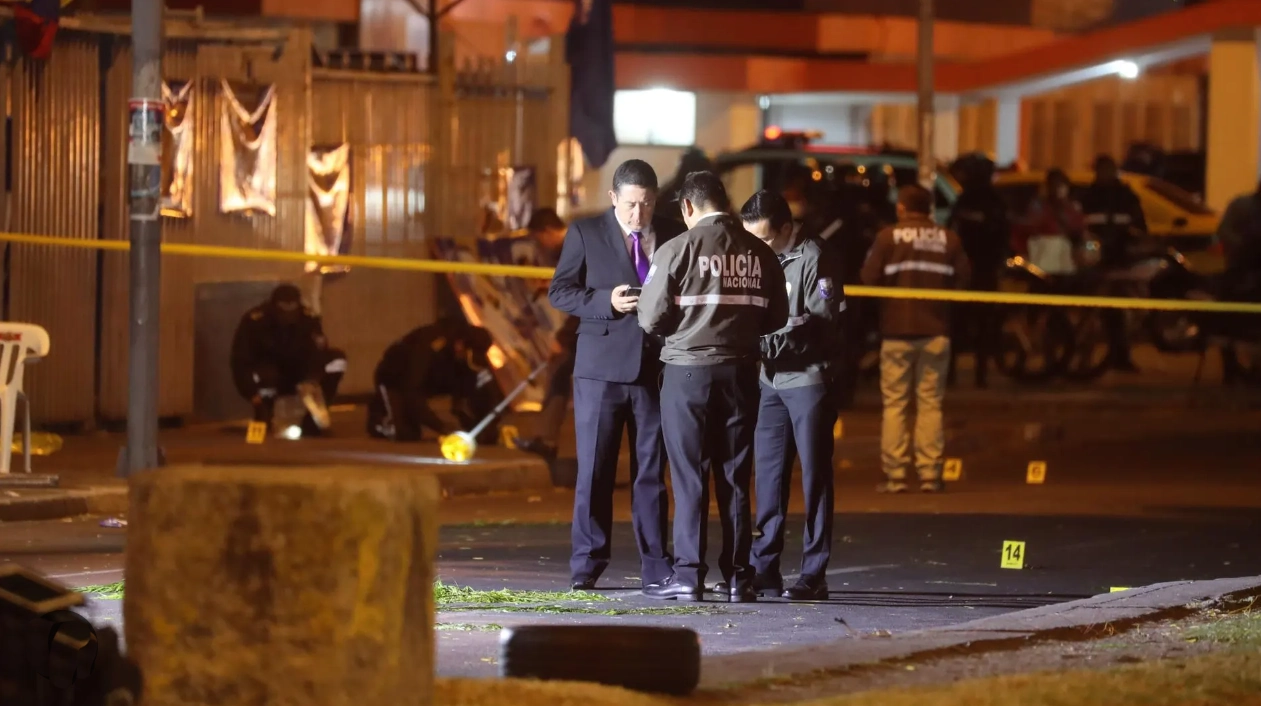The assassination of Fernando Villavicencio, who was the candidate of the Movement Construye to win the Presidency of Ecuador, brings to mind the assassinations of Colombian presidential candidates Luis Carlos Galán in 1989 and Carlos Pizarro Leongómez in 1990, and Mexican candidate Luis Donaldo Colosio in 1994. In all of these crimes, allegedly, drug cartels were involved.
This new assassination has raised alarms for those seeking to safeguard the fragile Latin American democracies. But this déjà vu brings us back to the problem that has been threatening the viability of the state and its institutions in certain countries of the region for decades due to its correlation with violence and death.
Ecuador, which a decade ago was only a transit point for drugs, has turned into a country of “storage, processing, and distribution.” This involves the formation of local franchises that cater to the interests of Mexican cartels, which are considered by the U.S. government to be among the most powerful in the world.
On July 12, the Principal Deputy Administrator of the Drug Enforcement Administration, Georges Papadopoulos, published the document Protecting the U.S. Homeland: Fighting the Flow from the Southwest Border. It highlights the dimension and power of the Sinaloa and Jalisco New Generation cartels through a network of franchises and criminal alliances on a global scale.
Regarding the Sinaloa Cartel, it notes that this organization has more than 26,000 members, associates, facilitators, and affiliated runners in a hundred countries. Meanwhile, Jalisco New Generation has over 18,800 people among members and affiliates and also operates in over 100 countries. These figures contrast with those of the DEA, which operates in only 69 countries and has around 9,000 employees.
Additionally, the International Maritime Center Against Drug Trafficking in Colombia produced a map in 2021, showing the five drug trafficking routes that document the passage of drugs between Ecuador and the coasts of Mexico. A constant in territories controlled by organized crime is that, to optimize their operations and businesses, it becomes increasingly essential to gain control over sections of public institutions and political representation at all three levels of government—federal, state, and municipal—to create a kind of barrier against political decisions adverse to their interests.
In pursuing this goal of creating a parallel state, these organizations have resorted to pressure, intimidation, and the assassination of social leaders, as well as political leaders who have opposed this process of capturing public institutions.
The current uncertainty in Ecuador was also experienced in Mexico during the concurrent elections of 2021, where various organized crime groups became the deciding factor, especially in the states along the Pacific coast. They intervened violently in the selection of candidates, electoral campaigns, and on election day itself. Nearly a hundred leaders, activists, and candidates were murdered.
According to the First Report on Political Violence in Mexico 2021, by the civil organization Etellekt, there were 782 attacks against politicians and candidates between September 7, 2020, and May 30, 2021. Among the recorded attacks, 35 candidates for public office were assassinated. In total, 89 politicians were killed.
In these days when Mexico is undergoing processes to define the presidential candidates for the two major coalitions expected to compete in 2024, the issue of cartels and their violence is practically absent from public debate. This is although the majority of Mexicans consider this issue their greatest concern.
In conclusion, the assassinations of Colombian presidential candidates Galán and Pizarro, as well as Mexican candidate Colosio, and now Ecuadorian candidate Villavicencio—who, incidentally, called on President Andrés Manuel López Obrador to take responsibility for the problem exported by his country—are the consequences suffered by those who dare to challenge the power of narco. Thus, more than just declarations and political statements are needed to stop this scourge.
*Translated by Ricardo Aceves from the original text in Spanish.











